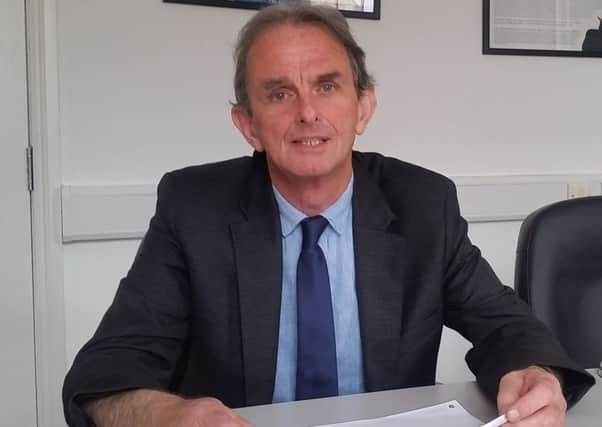'˜The police were there to protect you. Not shoot you' - Benburb family speaks out 40 years after father's murder


The lives of Benburb man, Jim McLoughlin, his brothers and their mother May, were irreparably damaged in a brutal loyalist gun attack which claimed the life of their father Fred as he sat in The Eagle Bar on the night of May 15, 1976.
Yet, in a sign of what were very different times, the McLoughlin family simply did their best to move on with their lives, at the behest of their mother, who passed away some years later, having never got over losing her husband and the father of her four sons.
Advertisement
Hide AdAdvertisement
Hide Ad“Like everybody else at that time, there was a funeral and that was it. You went on about your business. My mother didn’t want anybody getting involved in the case, to the point that when the ones that did it - RUC Reservist Joseph Lutton, Territorial Army Private Garfield Beattie and former UDR man David Kane - were in court, we never knew about it. It was just, go ahead, live your lives.”


Fred McLoughlin was only 47 when he died in hospital 16 days after being shot as he sat with friends in The Eagle Bar.
The same night, at Clancy’s Bar, just yards from The Eagle, the same gang left a bomb at the front door, killing owner Felix (Vincy) Clancy, Sean O’Hagan and Robert McCullough.
Four completely innocent lives were taken that night but they are lives that will never be forgotten because of the commitment of people like Jim McLoughlin, who have now taken up the mantle to uncover the truth behind the senseless murders.
Advertisement
Hide AdAdvertisement
Hide AdJim’s father, born a Protestant, was a manager in the Co-Op near Grange, and has been described by his son as funny, witty and decent.


Forty years on from his murder, Jim and his brothers want only one thing - the truth.
He tells of the “absolute shock” the family felt when they finally took the decision to learn more about the case at a meeting with the Pat Finucane Centre in Benburb in 1999.
“From that, we got the HET report, and that’s when the shock really hit us. Until that point, we knew nothing about who these people were that carried out the attack. We didn’t know one was a serving member of the RUC Reserve, one was in the Territorial Army. So it was a big shock. If you are saying it plainly, the police were there to protect you. They’re not there to shoot you. You hear people say about bad apples, but when Lutton was charged, why didn’t they (RUC) say that?”
Advertisement
Hide AdAdvertisement
Hide AdAmong other issues the McLoughlin family want addressed in their quest for truth is the delay between the arrests of Garfield Beattie and David Kane, and that of Joseph Lutton, in connection with their father’s murder.
“Why was Lutton not arrested until two years later?”, Jim asked. “There’s no record at all, in the police interviews with Beattie and Kane, that they were ever asked, who was the third person.
“When Lutton went to court there was never any mention that he was an RUC man. He went right through the police, the courts, the Director of Public Prosecutions, the Judge. Never once was it mentioned he was a policeman. All we are looking to know is the truth. Why did that happen? If Lutton was a bad apple, why didn’t they come out and say we are sorry for this?”
Also on the list of questions, Jim explains, is whether Garfield Beattie, convicted of the murder of Denis Mullen in September 1975, was arrested after that incident?
Advertisement
Hide AdAdvertisement
Hide Ad“If he (Beattie) was, there’s a possibility he might not have been about to kill my father”, Jim adds.
As the the fortieth anniversary of The Eagle Bar and Clancy’s Bar attacks approaches this weekend, Jim concludes: “Our main motivation would be, we don’t think we did enough at the time. We just moved on too quick. And it’s just more or less a personal thing for the families.
“We would like an opportunity to put those questions to the Chief Constable and others. Surely it wouldn’t take too much to clear it up, ask a few questions. That’s all we’re looking. I know a lot of people would want to draw a line under the past, but I would say to them, read what happened to us, put their father in my da’s situation, our family’s situation, and ask would they draw a line under it all?”